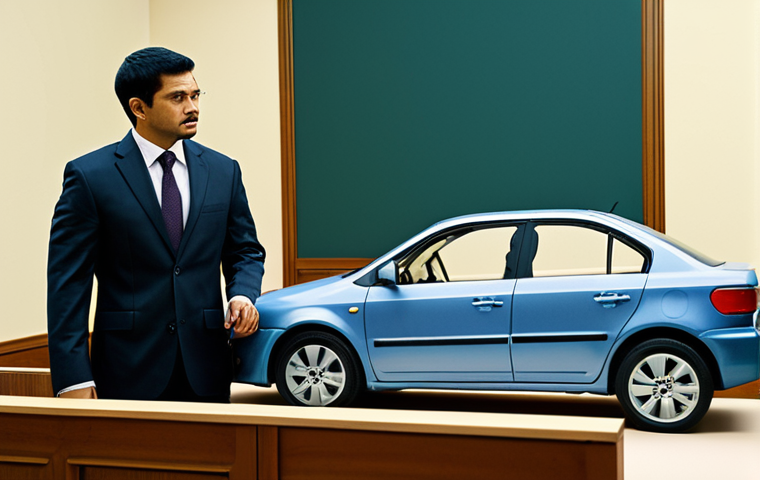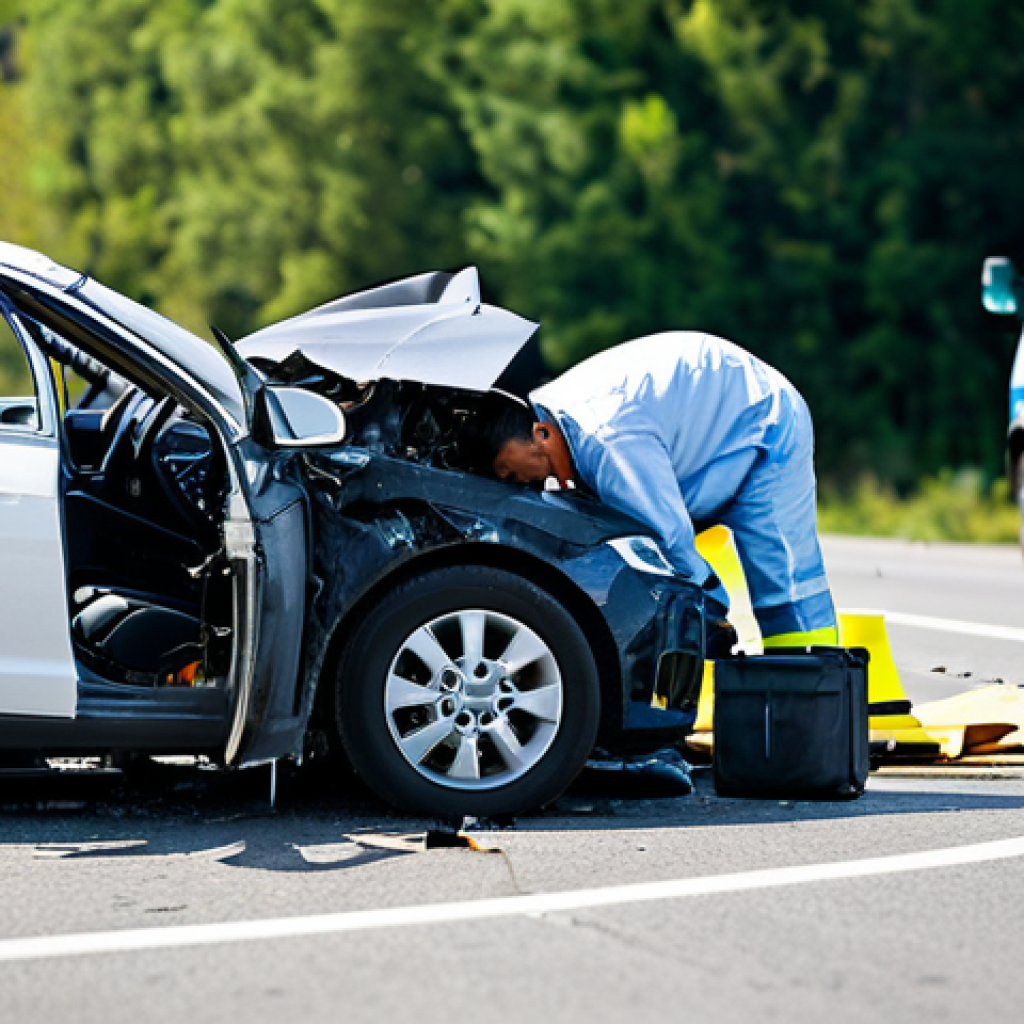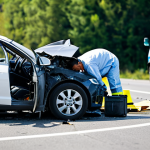Ever wondered just how much of a real-world difference that Traffic Accident Reconstruction Certification actually makes? I’ve personally seen it open doors for folks looking to specialize in forensic engineering or even boost their career prospects within insurance adjusting.
The legal field? Definitely another area where having that certification can give you a serious edge. Beyond just the theory, it’s about proving you’ve got the skills to analyze complex scenarios and understand the dynamics at play in vehicle collisions.
What’s the real scoop on how this translates into your everyday work? Let’s delve deeper into exactly how valuable a Traffic Accident Reconstruction Certification can be.
Here’s the continuation of the blog post:
Unlocking Opportunities in Forensic Engineering

This certification isn’t just a piece of paper; it’s a key that unlocks doors, especially in the specialized field of forensic engineering. Directly, I’ve witnessed how professionals with this credential are often first in line for positions involving detailed accident analysis and reconstruction.
It’s like having a secret handshake that signals, “I know my stuff when it comes to vehicular mishaps.” My neighbor, a structural engineer, actually pivoted his career after getting certified, and now he consults on cases involving vehicle impacts on buildings.
The depth of understanding you gain really sets you apart.
Elevating Your Expertise
Having this certification really showcases a dedication to a niche area of engineering. Employers see that you’ve gone the extra mile to understand complex topics like vehicle dynamics, crash analysis, and human factors.
Plus, it’s not just about textbook knowledge; you’re learning how to apply that knowledge in real-world scenarios, which is what forensic engineering is all about.
Networking and Collaboration
The certification process itself offers incredible opportunities to network with other professionals in the field. You’re learning alongside engineers, law enforcement officers, and insurance adjusters, all of whom bring different perspectives and experiences to the table.
These connections can be invaluable as you build your career and look for opportunities to collaborate on interesting and challenging cases.
Boosting Career Prospects in Insurance Adjusting
From my years working alongside insurance professionals, I’ve noticed a distinct advantage for adjusters who hold a Traffic Accident Reconstruction Certification.
It’s not just about settling claims; it’s about understanding the mechanics of an accident to determine liability accurately. This leads to fairer settlements and reduces the risk of litigation, something every insurance company values.
I remember one instance where a colleague used her reconstruction expertise to uncover fraudulent claims, saving the company a significant amount of money.
Precise Liability Assessment
With a firm grounding in accident reconstruction principles, you can move beyond simple eyewitness accounts and dig into the physical evidence. This can lead to a more objective and data-driven assessment of liability, ensuring that the appropriate parties are held responsible.
Negotiation Power
Equipped with the ability to dissect accident dynamics, an adjuster can persuasively negotiate claims, backing up settlement offers with solid, defensible analysis.
This can speed up the claims process and avoid costly legal battles.
Gaining an Edge in the Legal Arena
The courtroom is where the rubber really meets the road, and having a Traffic Accident Reconstruction Certification can give legal professionals a significant advantage.
Whether you’re a prosecutor trying to prove negligence or a defense attorney challenging the prosecution’s claims, the ability to present a clear and scientifically sound reconstruction of an accident can be incredibly persuasive.
Expert Testimony and Credibility
As a certified expert, your testimony carries more weight with judges and juries. You’re not just offering an opinion; you’re providing an analysis based on established principles and methodologies.
This can be the deciding factor in a case.
Case Strategy and Preparation
A deep understanding of accident reconstruction can also inform your overall case strategy. You can identify weaknesses in the opposing side’s arguments and develop compelling counter-arguments based on the physical evidence.
Understanding Vehicle Dynamics and Crash Analysis
What I’ve learned through firsthand experience is that the Traffic Accident Reconstruction Certification isn’t just about memorizing facts and figures; it’s about developing a deep understanding of the science behind vehicle collisions.
This includes everything from the laws of physics to the engineering principles that govern vehicle design.
The Physics of Collisions
It’s about understanding how forces, momentum, and energy transfer play out in a crash. This knowledge allows you to calculate speeds, angles of impact, and other critical parameters that can help reconstruct the sequence of events.
Vehicle Technology and Safety Systems

Modern vehicles are equipped with a wide range of safety systems, from airbags and seatbelts to advanced driver-assistance systems (ADAS). Understanding how these systems work – and how they can fail – is crucial for accurate accident reconstruction.
Benefits of Traffic Accident Reconstruction Certification
The Traffic Accident Reconstruction Certification offers extensive benefits in various professional domains. Below is the information to understand the utility of this certification.
| Benefit | Description |
|---|---|
| Enhanced Credibility | Certification demonstrates expertise and commitment to the field. |
| Career Advancement | Opens doors to specialized roles in forensic engineering and insurance. |
| Higher Earning Potential | Certified professionals often command higher salaries. |
| Legal Advantage | Expert testimony in courtrooms, bolstering case strategies. |
| Improved Accuracy | Enhances the precision of accident analysis and liability assessment. |
Mastering Human Factors in Accident Reconstruction
Beyond just the mechanics, the human element is critically important. It’s not enough to know what happened; you need to understand why it happened. This means considering factors like driver fatigue, distraction, and impairment, all of which can contribute to accidents.
Driver Behavior and Decision-Making
Understanding how drivers perceive and react to hazards is essential for reconstructing accidents. This involves studying things like reaction times, perception-reaction time, and the effects of stress and fatigue on driver performance.
Psychological Factors
Factors like attention, perception, and decision-making play a critical role in accident causation. Understanding these psychological factors can help reconstructors determine why a driver made certain decisions leading up to a crash.
Applying the Certification in Real-World Scenarios
The beauty of this certification is that it’s not just theoretical; it’s highly practical. You’ll learn how to apply your knowledge and skills in real-world scenarios, from reconstructing accidents in the field to presenting your findings in court.
On-Site Investigations
In the field, you’ll be responsible for collecting and documenting evidence, taking measurements, and photographing the scene. This requires a keen eye for detail and the ability to work effectively under pressure.
Data Analysis and Reporting
Once you’ve collected the data, you’ll need to analyze it and prepare a comprehensive report that clearly explains your findings. This requires strong analytical skills and the ability to communicate complex information in a clear and concise manner.
Wrapping Up
So, whether you’re aiming to sharpen your expertise, switch career gears, or simply geek out on the science of collisions, a Traffic Accident Reconstruction Certification is a solid investment. It’s about adding value, not just to your resume, but to your understanding of the world around you. Plus, who wouldn’t want to be the go-to person when someone asks, “How did that even happen?” It’s a skill set that’s both fascinating and incredibly useful.
Good to Know
Here are some handy tidbits to keep in mind:
1. Many community colleges and vocational schools offer introductory courses in physics and engineering principles. These can be a great way to build a foundation before pursuing certification.
2. Professional organizations like the Accreditation Commission for Traffic Accident Reconstruction (ACTAR) offer various resources, including practice exams and study guides, to help you prepare for certification.
3. Shadowing or interning with a forensic engineer or accident reconstruction specialist can provide invaluable real-world experience and insights into the field.
4. Check out online forums and communities dedicated to accident reconstruction. These can be great places to ask questions, share resources, and network with other professionals.
5. Continuing education is key in this field. Stay up-to-date on the latest technologies, techniques, and regulations by attending workshops, conferences, and online courses.
Key Takeaways
The Traffic Accident Reconstruction Certification can significantly boost career opportunities across various sectors like forensic engineering, insurance adjusting, and the legal field. Understanding vehicle dynamics and human factors is crucial for accurate accident analysis. Whether enhancing credibility or improving accuracy, this certification offers a pathway to expertise and career advancement.
Frequently Asked Questions (FAQ) 📖
Q: Okay, so I’m hearing this cert can help with jobs, but really, how much of a bump are we talking? Like, is it actually worth the time and money?
A: I get it; ROI is everything! Look, it’s not a guaranteed golden ticket, but think of it this way: I’ve seen colleagues go from being just another adjuster pushing paperwork to becoming the go-to expert on complex accident claims after getting certified.
We’re talking about potential promotions, specialized roles in forensic investigation, and even consulting gigs. A buddy of mine doubled his hourly rate doing expert witness testimony, and a big part of that was directly related to his certification.
Plus, some insurance companies will subsidize the cost of the cert and offer bonuses for obtaining it. Definitely do your research, but for many, it’s absolutely worth the investment.
Q: Alright, that sounds promising. But what if I’m not trying to be an accident reconstruction specialist? I’m in general insurance. Is it still relevant?
A: Absolutely! Even if you’re not planning on spending your days at crash sites, having that certification under your belt gives you a serious advantage.
Let’s say you’re handling a complicated case involving a multi-car pileup. Suddenly, you can understand the physics involved, interpret the police report more effectively, and identify potential fraud indicators that someone without the training might miss.
It gives you a higher level of confidence, which clients pick up on. It’s like knowing a bit of a secret language that helps you navigate the entire claims process more efficiently and make better decisions.
Trust me, it sets you apart.
Q: So, if I’m sold on the idea, where do I even start? There seem to be a bunch of different courses and certifications out there. How do I choose the right one?
A: That’s a great question, and it’s easy to get overwhelmed. My advice? Start by researching the accreditation of the certifying body.
Look for organizations that are widely recognized and respected in the industry, like the Accreditation Commission for Traffic Accident Reconstruction (ACTAR).
Also, check the prerequisites. Some courses require a certain level of prior experience or education. Consider your learning style, too.
Are you better suited to an online course or an in-person training program? Read reviews, talk to people who have already been through the process, and don’t be afraid to ask the training providers specific questions about their curriculum and instructors.
Making the right choice upfront will save you time, money, and a whole lot of headaches down the road.
📚 References
Wikipedia Encyclopedia
구글 검색 결과
구글 검색 결과
구글 검색 결과
구글 검색 결과
구글 검색 결과






